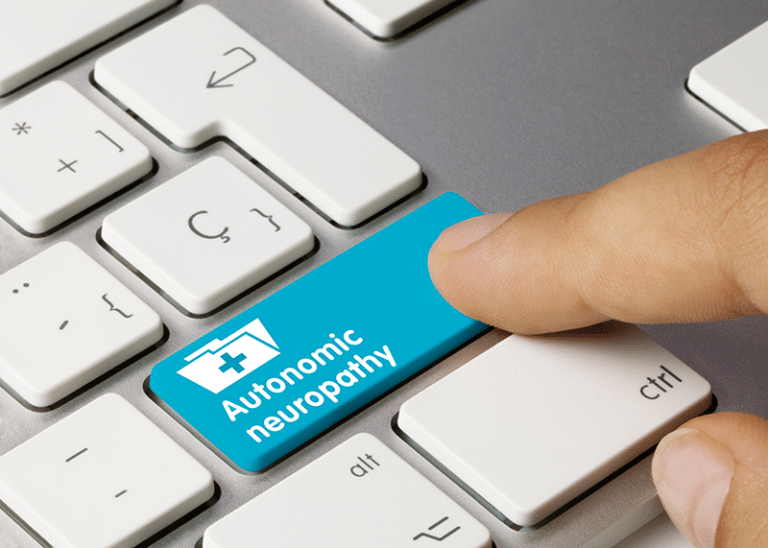
Have you ever experienced unexplained pain or discomfort? Perhaps you have been diagnosed with autonomic neuropathy, a condition that affects the autonomic nervous system.
Understanding this condition and its effects on your body is crucial for managing your symptoms and finding relief. It can be a complex and challenging condition, with symptoms varying greatly from person to person.
At Momentum Medical, we specialize in helping individuals understand and manage autonomic neuropathy.
Whether you have recently been diagnosed or have been living with this condition for years, our team of experts is dedicated to providing you with the knowledge and support you need to take control of your health.
Autonomic neuropathy refers to a condition that affects the autonomic nervous system, which controls various involuntary bodily functions such as heart rate, digestion, and bladder control.
The basics of autonomic neuropathy involve damage to the nerves that control these functions, disrupting their normal regulation.
Common causes of this condition include diabetes, certain medications, and autoimmune diseases. Symptoms can vary depending on the nerves affected. Still, they may include dizziness, difficulty swallowing, an irregular heart rate, and urinary problems.
Treatment typically focuses on managing the underlying cause and alleviating symptoms to improve the patient’s quality of life.
Autonomic neuropathy, a complex condition affecting the body’s nerves, can be triggered by various causes and is influenced by numerous risk factors. This condition impacts the autonomic nervous system, which controls vital functions such as heart rate, blood pressure, and digestion. Understanding autonomic neuropathy’s diverse origins and risk factors is crucial for effective management and treatment.
The most common cause of autonomic neuropathy is diabetes, particularly in individuals who have poorly controlled blood sugar levels over an extended period. High blood sugar damages the nerves and disrupts their ability to transmit signals correctly, leading to autonomic dysfunction.
Certain autoimmune disorders, such as lupus, rheumatoid arthritis, and Sjogren’s syndrome, can cause autonomic neuropathy. In these conditions, the immune system mistakenly attacks the body’s tissues, including the nerves, leading to nerve damage.
Excessive and chronic alcohol consumption can damage the nerves, including those in the autonomic nervous system. Alcohol-related autonomic neuropathy often develops gradually and may be irreversible if not addressed early.
Certain infections can trigger autonomic neuropathy. These include Lyme disease, HIV/AIDS, hepatitis C, and shingles (herpes zoster). The infections can directly damage the nerves or trigger an inflammatory response that injures the nerves.
In some cases, autonomic neuropathy may have a genetic component. Certain inherited conditions, such as familial dysautonomia and hereditary sensory and autonomic neuropathy, can lead to autonomic dysfunction.
Certain medications, such as chemotherapy drugs, some antibiotics, and certain heart medications, have been linked to autonomic neuropathy as a potential side effect. Environmental exposure, such as heavy metals, pesticides, and industrial chemicals, can also damage the nerves and contribute to autonomic dysfunction.
Autonomic neuropathy can affect people of any age, but it becomes more common as individuals get older. Additionally, some studies suggest that men may be at a slightly higher risk of developing autonomic neuropathy compared to women.
Certain medical conditions, such as kidney disease, liver disease, celiac disease, and cancer, can increase the risk of autonomic neuropathy. These conditions may directly damage the nerves or contribute to the development of other risk factors, such as diabetes or alcohol abuse.
It’s important to note that the causes and risk factors mentioned above are not exhaustive, and sometimes, the exact cause of autonomic neuropathy may remain unknown.
If you experience symptoms such as dizziness, rapid heart rate, digestive issues, or bladder dysfunction, it is crucial to seek medical attention for a proper diagnosis and management of the condition.
Diagnosing autonomic neuropathy involves:
These tests may include heart rate variability testing, blood pressure monitoring, sweat tests, and bladder function tests.
Accurately diagnosing and assessing autonomic neuropathy allows healthcare professionals to develop personalized treatment plans and interventions to manage symptoms and improve the quality of life for affected individuals.
Autonomic neuropathy dramatically affects the quality of life. It disrupts the autonomic nervous system, which regulates vital functions such as heart rate, blood pressure, and digestion.
Symptoms include irregular heart rate and blood pressure, gastrointestinal issues, urinary problems, and sexual dysfunction. These symptoms lead to physical discomfort and social anxiety. They also cause mental health issues like stress and depression.
Treatment aims at relieving symptoms and promoting lifestyle changes. It stresses the importance of a robust support system. Comprehensive medical care is crucial. Patient education and psychological support are vital to managing the condition’s challenges and uncertainties.
Embarking on the journey to better autonomic health can be challenging. Still, with the proper guidance and support, it’s a path filled with potential for improved well-being. Momentum Medical is your dedicated partner in this quest, offering expert knowledge, innovative treatments, and personalized care.
Our approach is rooted in understanding the unique needs of each individual facing autonomic disorders. Whether it’s navigating complex symptoms, adopting lifestyle changes, or exploring advanced therapies,
Momentum Medical is committed to guiding you every step of the way. Join us on this road to better autonomic health, where empowerment, expert care, and cutting-edge solutions converge to help you achieve a healthier, more balanced life.
Contact us today to learn more about how we can help you manage your autonomic neuropathy or to schedule an appointment.
Serving Volusia, Flagler, Orange, Osceola, Hillsborough, Pasco, Pinellas, and Seminole county patients with back pain conditions, sports injury, work injury, headaches, lower back pain, auto accident injuries, neck pain and more.
Our staff can accommodate Spanish, French and Russian speaking patients. All other languages with enough notice we can schedule a translator.
Todas nuestras localizaciones tienen hablantes de español en el personal.
© 2024 Momentum Medical